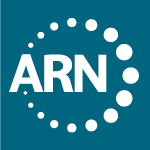Advanced Practice in Rehabilitation Nursing
Changes in health care are influencing the conversion of many positions in nursing to advanced practice positions due to the complexity of providing and managing care for clients and families. These changes are creating a shift in demand for increasing numbers of advanced practice registered nurses in rehabilitation in order to meet the needs of people experiencing chronic illness and disability.
Current Status:
In the future, position titles and responsibilities will continue to change and evolve to meet the needs of society and the healthcare delivery system. Clients with chronic illness and disability will continue to require access to highly skilled rehabilitation professionals for their continued healthcare needs. The Association of Rehabilitation Nurses (ARN) projects that in this increasingly complex environment, the growth in the number of nurses with advanced skills and practice responsibilities will be imperative to achieve optimal client outcomes. Furthermore, ARN Endorses the Institute of Medicine’s report, The Future of Nursing, suggestions to ensure that nurses can practice to the full extent of their education, provide opportunities for nurses to assume leadership positions and to serve as full partners in health care redesign and improvement efforts, and improve data collection for workforce planning and policy making in order to meet the current demands while improve the quality of the healthcare system (Institute of Medicine [IOM], 2011).
For these reasons, the Association of Rehabilitation Nurses acknowledges and supports the state boards of nursing as the governing bodies for nursing licensures and American Nurses Association with the right and responsibility to define specialization in practice. This statement is consistent with the American Board of Nursing Specialty definition of a nursing specialty ((Dunn, 2019). ARN supports advanced practice registered nurses in the clinical practice of rehabilitation. ARN has developed a scope and standards of practice (Rehabilitation Nursing Standards Task Force. (2014). These standards incorporates both ARN's definitions regarding advanced practice, outlined by the American Nurses Association's Nursing's Social Policy Statement (ANA, 2010b), and the Consensus Model for APRN Regulation: Licensure, Accreditation, Certification and Education (ANA, 2010b, APRN Consensus Work Group, 2008). The advanced practice registered nurse (APRN) in rehabilitation nursing provides service through core competencies of direct care, consultation, research, expert guidance, leadership, ethical decision making, and collaboration.
Advanced practice registered nurses in rehabilitation have a master’s or doctorate degree in nursing and have passed a national certification examination that measures population focused competencies. They demonstrate a high level of autonomy and expert skill in rehabilitation nursing. Responsibilities may include:
Conducting comprehensive assessments, conceptualizing, diagnosing, prescribing/treating, and coordinating care for complex health issues associated with chronic illness and disabilities.
Participating in the development of evidence-based practice standards and advancement of scientific theories upon which nursing is based.
Providing leadership for practice changes through advocacy and legislative activities, expert consultation, research implementation, clinical practice advancement, quality improvement measures, and outcome management activities.
Synthesizing complex data to optimize health outcomes to maximize function and minimize disabilities.
Assessing the healthcare needs of all ages, clients, families, groups, and communities across the continuum.
Providing education to patients, families, and fellow rehabilitation nurses regarding disease management, complications prevention, disease prevention, and quality of life improvement.
Contributing to the advancement of the rehabilitation nursing profession as a whole through research, publications, and presentations.
Advanced practice registered nurses in rehabilitation may practice in a wide variety of roles across the healthcare continuum and hold an array of titles that incorporate specialization, enhancement, expansion of practice and knowledge, and education at an advanced level ((ANA, 2021 ). Some of the various roles and job titles include clinical nurse specialist, certified nurse practitioner, case manager, unit manager, program manager, rehabilitation coordinator, and/or consultant. They may practice in a variety of settings such as inpatient acute care, acute rehabilitation, subacute rehabilitation, long term acute care, long-term care, home health, ambulatory care, insurance companies, schools of nursing, and private practice.
Rehabilitation nurses providing health care in advanced practice roles need to conform to the highest uniform national standards available. Advanced education and advanced practice role certification validate the qualifications and practice competencies of the advanced practice registered nurse, ensuring that the continued health and safety of the public are protected (APRN Consensus Work Group, 2008).
Recommendation:
The Association of Rehabilitation Nurses supports the premise that educational requirements, self-regulation, and a standardized certification process that meets uniform national standards would ensure highly competent practitioners and protect the public. Throughout health care, education and advanced certification are considered the mechanisms through which professions regulate themselves (ANA, 2021). This framework is supported by ARN.
The definition, scope, and standards of advanced rehabilitation nursing practice enable the advanced practice rehabilitation nurse to function wherever individuals, families, and communities are affected by chronic illness and disability
Updated by the Continuing Education Provider Unit in 2024.
References:
American Nurses Association. (2021). Nursing: Scope and Standards of Practice (4th ed.). Silver Spring, MD.
American Nurses Association. (2010 delete since other ANA reference has been updated). Nursing’s Social Policy Statement: The Essence of the Profession (3rd ed.). Silver Spring, MD.
APRN Joint Dialogue Group. (2008). Consensus Model for APRN Regulation: Licensure, Accreditation, Certification and Education. Retrieved from http://www.nursingworld.org/ConsensusModelforAPRN.
Dunn, D. (2019). The meaning and value of certification. AORN Journal, 110(3): 232-236.
https://doi.org/10.1002/aorn.12796
Institute of Medicine. (2011). The future of nursing: Leading change, advancing health. National Academies of Science, Washington, D.C. ISBN-13 9780309158237
Rehabilitation Nursing Standards Task Force. (2014). Standards and Scope (6th Ed.). Association of Rehabilitation Nurses. : Chicago, IL.

